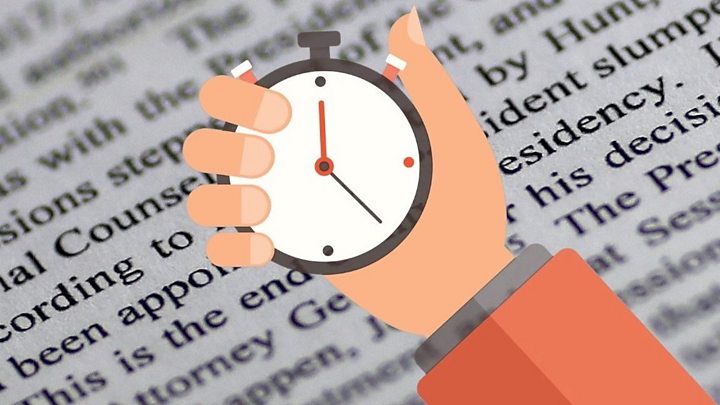Contempt vote looms for US attorney general
Democrats in the US House of Representatives are about to vote on whether to hold Attorney General William Barr in contempt of Congress.
The judiciary committee initiated the proceedings when Mr Barr refused to submit an unredacted version of Special Counsel Robert Mueller’s report.
President Donald Trump has hit back by asserting executive privilege over the report, shielding it from public view.
The White House accused Democrats of a “blatant abuse of power”.
But House judiciary chairman Jerrold Nadler said the Trump administration’s refusal to provide the full Mueller report to Congress amounts to a “constitutional crisis”.
The New York Democrat said his party had “no choice” but to move forward with the contempt vote, “otherwise, we have a monarchy”.
The redacted 448-page Mueller report, released last month, did not determine there was a criminal conspiracy between Moscow and the president’s 2016 election campaign.
But it detailed 10 possible instances of obstruction of justice by Mr Trump involving attempts to impede the special counsel’s investigation.
Mr Mueller stopped short of any obstruction conclusions, but did note that Congress has the authority to apply obstruction of justice laws to a president.
Democratic lawmakers say that they are unable to make any decisions on whether Mr Trump obstructed justice without seeing the entirety of the Mueller report.
What does the contempt vote mean?
The judiciary committee will vote on Wednesday on whether to recommend a contempt resolution against the attorney general for a full House vote.
Democratic lawmakers took action after Mr Barr did not comply with a subpoena to release the Mueller report minus the redactions.
For Mr Barr to actually face the prospect of charges, the entire Democratic-controlled House – including its Republican lawmakers – would have to vote on the measure.
The vote may be largely symbolic as it is seen as unlikely that the Department of Justice would actually indict America’s top law official with criminal contempt.
However, it would send a powerful message to the White House about congressional Democrats’ refusal to back down in an increasingly bitter standoff.
Mr Barr would be the first attorney general held in contempt of Congress since the Obama administration’s Eric Holder in 2012.
The current attorney general, who was appointed by the president, missed another deadline last week to release an uncensored version of the report.
His department has called the Democratic request for the Mueller report and its underlying evidence “premature and unnecessary”.
How did the White House respond?
White House Press Secretary Sarah Sanders confirmed that, at the Attorney General’s request, Mr Trump has made a “protective assertion of executive privilege”, blocking access to the full Mueller report.
“Neither the White House nor Attorney General Barr will comply with Chairman Nadler’s unlawful and reckless demands,” she said in a statement.
“The Attorney General has been transparent and accommodating throughout this process, including by releasing the no-collusion, no-conspiracy, no-obstruction Mueller Report to the public and offering to testify before the Committee. These attempts to work with the Committee have been flatly rejected.
“They didn’t like the results of the report, and now they want a redo.”
The judiciary committee chairman argued that the White House was misapplying the doctrine of executive privilege.
Mr Nadler said: “This decision represents a clear escalation in the Trump administration’s blanket defiance of Congress’s constitutionally mandated duties.”
What is executive privilege?
Executive privilege allows the president to keep certain materials private if disclosing them would disrupt the processes of the executive branch, according to Cornell University’s Legal Information Institute.
The term itself is not mentioned in the US constitution, but many see it as an implied power of the presidency.
President Dwight Eisenhower first coined the phrase and it has been used by both Republican and Democratic presidents since.
During the Watergate investigation, President Richard Nixon tried to use executive privilege to block access to White House recordings – but the Supreme Court rejected the measure.
President Bill Clinton also invoked executive privilege during the Monica Lewinsky scandal to avoid having top aides testify, but a federal court ruled against him and the White House declined to push the matter to the Supreme Court.
Will Robert Mueller testify?
The House Judiciary Committee has formally requested Mr Mueller to testify, though a date has not yet been set.
The special counsel is still a Department of Justice employee, which means the attorney general could prevent him from testifying.
Mr Barr has previously said he would not mind Mr Mueller testifying before Congress. Mr Trump, however, has now called for the special counsel to not testify, tweeting: “No redos for the Dems!”
When Mr Mueller initially handed in his report, a spokesman said he would be leaving the department “within the coming days”.
If he does quit, he will become a private citizen and able to testify regardless of the department’s wishes.
Source: Read Full Article




